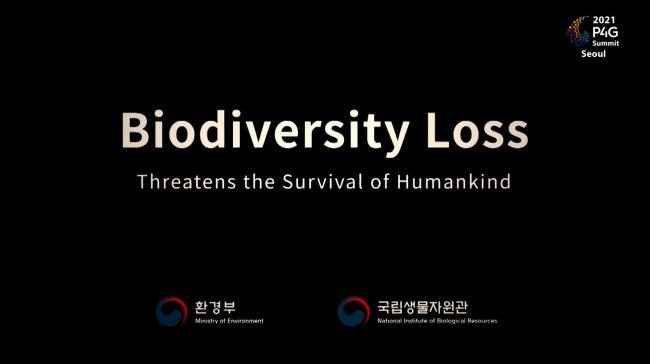Business Paradigm Shift in the Era of Environmental, Social and Corporate Governance (ESG) & Green Tech
In its first round of discussions on day 4 of Green Future Week, participants discussed how businesses can make a paradigm shift for the planet, and the prospects for green technology adoption and sustainable growth.
Chey Tae-won, Korea Chamber of Commerce and Industry, affirmed the need for “green accounting” to quantify business impacts on the planet. He drew attention to the work of the Value Balancing Alliance in showing the way towards a global accounting standard that will incorporate negative externalities of business activity.
Speakers from some household-name companies then presented their commitments toward becoming carbon-neutral or climate-positive by 2050. Juvencio Maeztu, CFO and Deputy CEO, Ingka Group at IKEA, emphasized that reducing greenhouse gas emissions can translate into profits, citing, for example, its low-cost and low-energy LED lights that save money for the consumer as well as genere profits for the company.
Sarah Chandler, Environment and Supply Chain Innovation, Apple, company related how the company reuses the gold and copper from old iPhones, uses sustainable packaging materials, and removes more than one million megatons of carbon from the atmosphere yearly, through its forestry partnerships with WWF and The Conservation Fund.
Panelists presented examples of successful uptake of green technology, including Denmark’s successes with wind energy systems, which are now being used in many other countries. Another example presented is the VinFast company in Viet Nam that has made and popularized electric vehicles, employing a battery-leasing scheme that reduces costs for the consumer and also ensures that the company can recycle used batteries.
Hope for the Future, Biodiversity Restoration
In the second round of discussions, participants discussed biodiversity restoration. In a keynote address, Ban Ki-moon, President and Chair, Global Green Growth Institute, emphasized the need for nature-based solutions to protect ecosystems and biodiversity, and for all living creatures to co-exist in harmony with nature. Jane Goodall, Jane Goodall Institute, called on humans to come together and for each to play a part in restoring the healthy ecosystems that humans rely on for our survival.
Researchers presented the role of healthy ecosystems, the sources of pandemics, and the ways in which humans can restore harmony with nature. Several speakers noted that the roots of the current COVID-19 pandemic relate to human society’s destructive relationship with the natural world. They highlighted that the incidence of zoonoses has increased in frequency in the 21st century, with Ebola, SARS, MERS, avian and swine flus all appearing prior to COVID.
Kate Jones, University College London, reported that two-thirds of infectious diseases in humans are of animal origin. She discussed the need to change human behavior in order to avoid the next pandemic.
Dolors Armenteras, National University of Colombia, highlighted the impacts of agriculture and inequality in land tenure systems in the Amazon basin, with adverse consequences for climate and biodiversity.
Presenters also addressed how to strengthen communication and cooperation among global experts and citizens to enhance action on climate change and biodiversity conservation.
To receive continuing coverage of this event delivered to your inbox, subscribe to the ENB Update newsletter.











